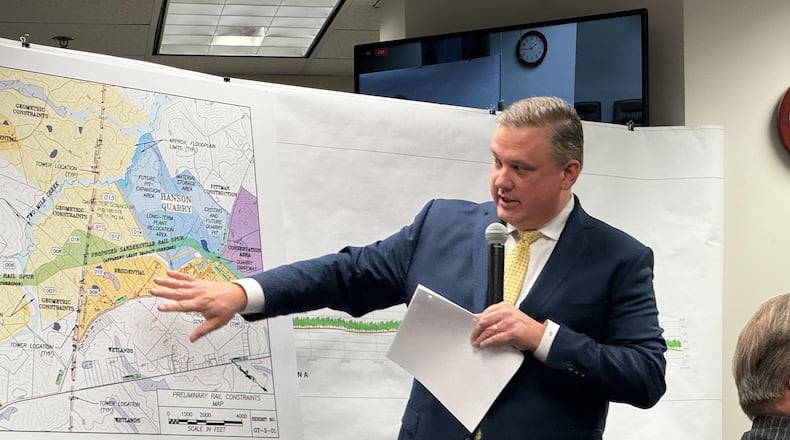A judge ruled a railroad can use eminent domain in one of Georgia’s poorest counties to build a spur to serve private businesses, a decision some residents in the railway’s path vowed to appeal.
Fulton Superior Court Judge Craig Schwall wrote Tuesday that state regulators were correct to allow Sandersville Railroad to condemn portions of several parcels to build 4.5 miles of new tracks near the town of Sparta, about 100 miles east of downtown Atlanta. Since the controversy began two years ago, it has pitted a politically connected railroad against long-time property owners, some whose families have ties to their land dating to slavery.
The controversial plan tests the limits of eminent domain powers in Georgia and has the potential to set precedent for how railroads as a public utility are able to condemn property to expand their businesses.
Sandersville Railroad has reached agreements to buy at least half of the 18 parcels it seeks to condemn. About half of the property owners remaining in the litigation are Black. Sandersville said it was pleased the judge ruled in its favor.
“The Hanson Spur is a critical infrastructure project that will open new channels of trade for local businesses, reduce truck traffic and serve the public with minimal impacts on our neighbors,” the company’s statement said.
The Institute for Justice, a libertarian legal group representing several landowners facing the eminent domain claims, said it will appeal Schwall’s ruling. In anticipation of such an appeal, the judge stayed his ruling from going into immediate effect.
“While today’s ruling is disappointing, we remain committed to proving to the courts that a private railroad’s desire to build a speculative new line entirely for the benefit of a handful of private companies is not a public use under the U.S. and Georgia Constitutions, and Georgia’s eminent domain laws,” IJ senior attorney Bill Maurer said in a statement.
Eminent domain is when a government or utility forces a private property owner to sell some or all of their land for public use. The Fifth Amendment to the U.S. Constitution protects against abuse of eminent domain and requires “just compensation” for seized property. Georgia law requires a court’s determination that a project serves a “public use,” adding that economic development alone is not enough.
The judge found Sandersville’s plans constitute a public use and provide a new channel of trade, both of which were contested points during arguments last week in court. IJ attorneys argued Sandersville’s plans would only benefit the railroad and businesses it serves while providing an alternative to truck traffic, but the railroad’s attorneys said state law was on its side.
The judge agreed, writing, “There is no requirement that the channel of trade be ‘new’ or ‘exclusive’ channel of trade, such that if any other shipping route exists, the new route will not serve public purpose.”
Five private companies, including quarries and pulp mills, have said they will use the new rail connection, which will connect their businesses to the broader CSX rail network. Sandersville Railroad also said the spur will boost tax revenues, pump $1.5 million annually into the area economy and create 12 new jobs with average salaries of $90,000.
A pending case in Hancock County Superior Court is evaluating the value of the remaining parcels the railroad looks to condemn, which would determine the sales prices.
“We will continue to work closely with the community as we move forward with the Hanson Spur,” the railroad’s statement said, “and once again encourage our neighbors to return to the negotiating table so we can bring new opportunities and channels of trade to all the citizens of Hancock County and the region.”
Editor’s note: This story has been updated to provide further context about the racial makeup of the remaining property owners involved in the litigation.
About the Author
Keep Reading
The Latest
Featured




